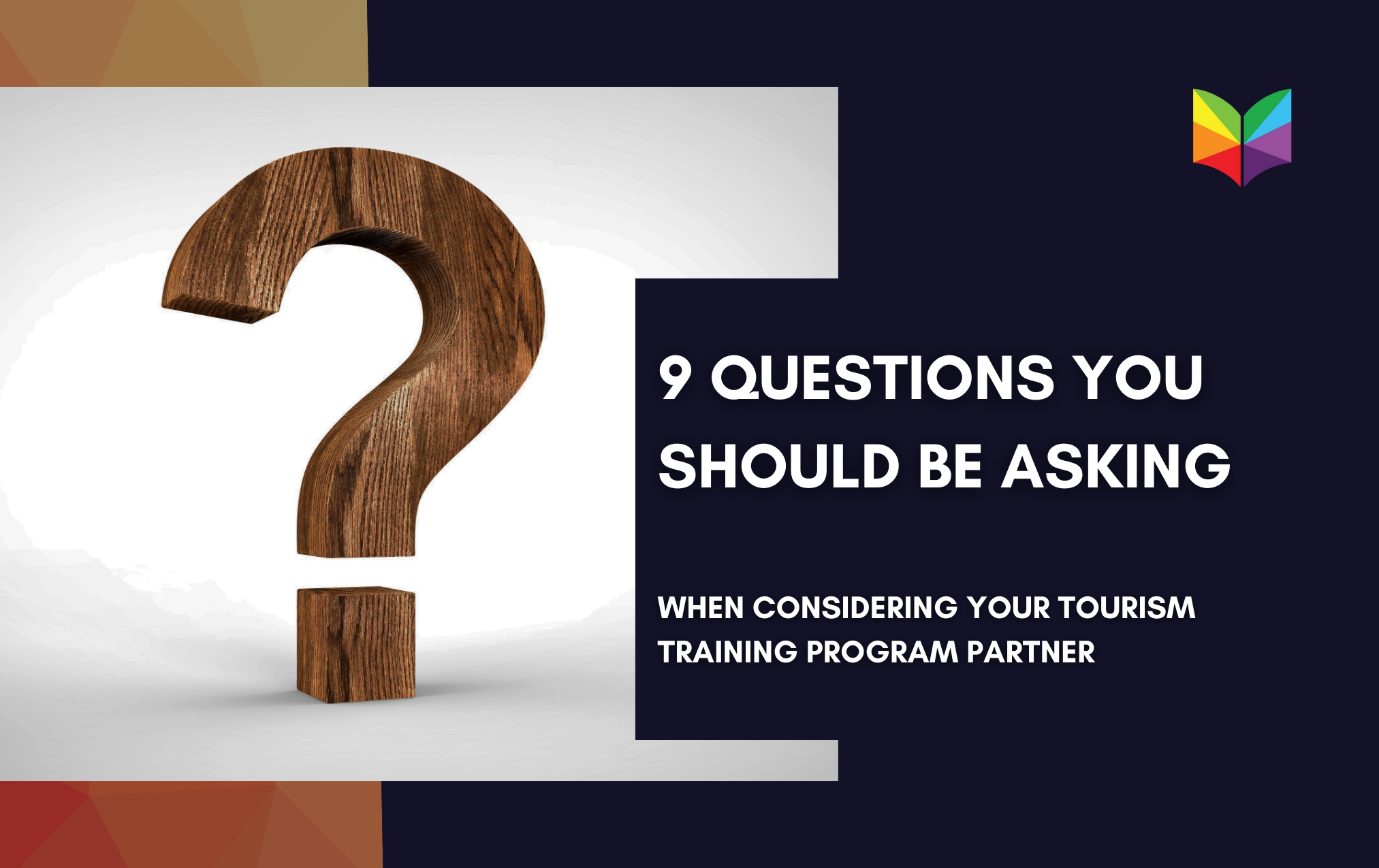
9 Questions You Should Be Asking When Considering Your Tourism Training Program Partner
Choosing the right partner to develop your tourism advocate or ambassador training programs is crucial for the success and sustainability of your destination marketing efforts. To ensure you make the best choice, here are nine essential questions you should ask potential vendors to avoid common pitfalls and ensure a fruitful partnership.
1. Who Owns the Tourism Ambassador Program Content?
Who will own the content and the platform? Many vendors retain ownership, which limits your control and flexibility. Could you make sure that you will have full ownership of your training program to avoid challenges when making changes and updates or if you decide to switch vendors?
2. How Easily Can We Make Edits and Updates?
Can you quickly make regular updates and revisions to keep the program relevant? Effective training programs need frequent updates, but some vendors need to make this more transparent. Please make sure the vendor offers a user-friendly interface for making edits and updates with minimal hassle.
3. What Experience Do You Have with Instructional Design and Adult Learning?
Do they have expertise in instructional design and adult learning principles? Not all vendors are skilled at creating engaging and effective training programs. Could you verify their experience in these areas to ensure they can produce content that resonates with and educates your audience?
4. How Transparent Are Your LMS Fees?
What is the pricing model for the Learning Management System (LMS)? LMS fees can quickly spiral out of control based on the number of users or courses. Look for vendors with transparent, scalable pricing models that won’t penalize your program’s growth.
5. Are There Limits on the Number of Courses, Users, or Reports?
Are there limits on the number of courses, users, or reports you can have? Some vendors impose restrictions that can severely limit your program’s capacity to grow and adapt. Ensure your vendor provides the flexibility to expand without hitting arbitrary limits.
6. How Interactive Are Your Learning Experiences?
Do they rely heavily on pre-recorded webinars, or do they offer truly interactive learning experiences? While webinars can be informative, they often need more engagement and interactivity for effective learning. Seek vendors who prioritize dynamic, interactive content.
7. What Is the Pricing Structure?
Is the pricing model per person, and how quickly does it add up? Per-person pricing can become prohibitively expensive as your user base grows. Consider vendors who offer more flexible pricing structures that accommodate growth without exorbitant costs.
8. What Support and Resources Do You Provide for Program Maintenance?
What level of support and resources do they provide to maintain the program? Maintaining some training programs requires significant time and effort, and some vendors underestimate this. Please make sure your vendor offers comprehensive support to manage and maintain your program effectively.
9. What Is Your Business Model and Track Record?
Is their business model reliable, and do they have a proven track record of success? Some vendors operate under licensing agreements that resemble franchising models but need more legitimacy and support. Scrutinize the vendor’s business model to ensure they can deliver on their commitments and offer the support you need.
Conclusion
Choosing the right partner for your ambassador and tourism advocate training program is essential for your DMO’s success. By asking these critical questions, you can avoid common pitfalls and select a vendor that truly supports your goals, offers flexibility, and delivers high-quality, engaging training experiences. Make an informed decision and invest in a partner that will help you build a sustainable and practical training program for your destination.

Leave a comment